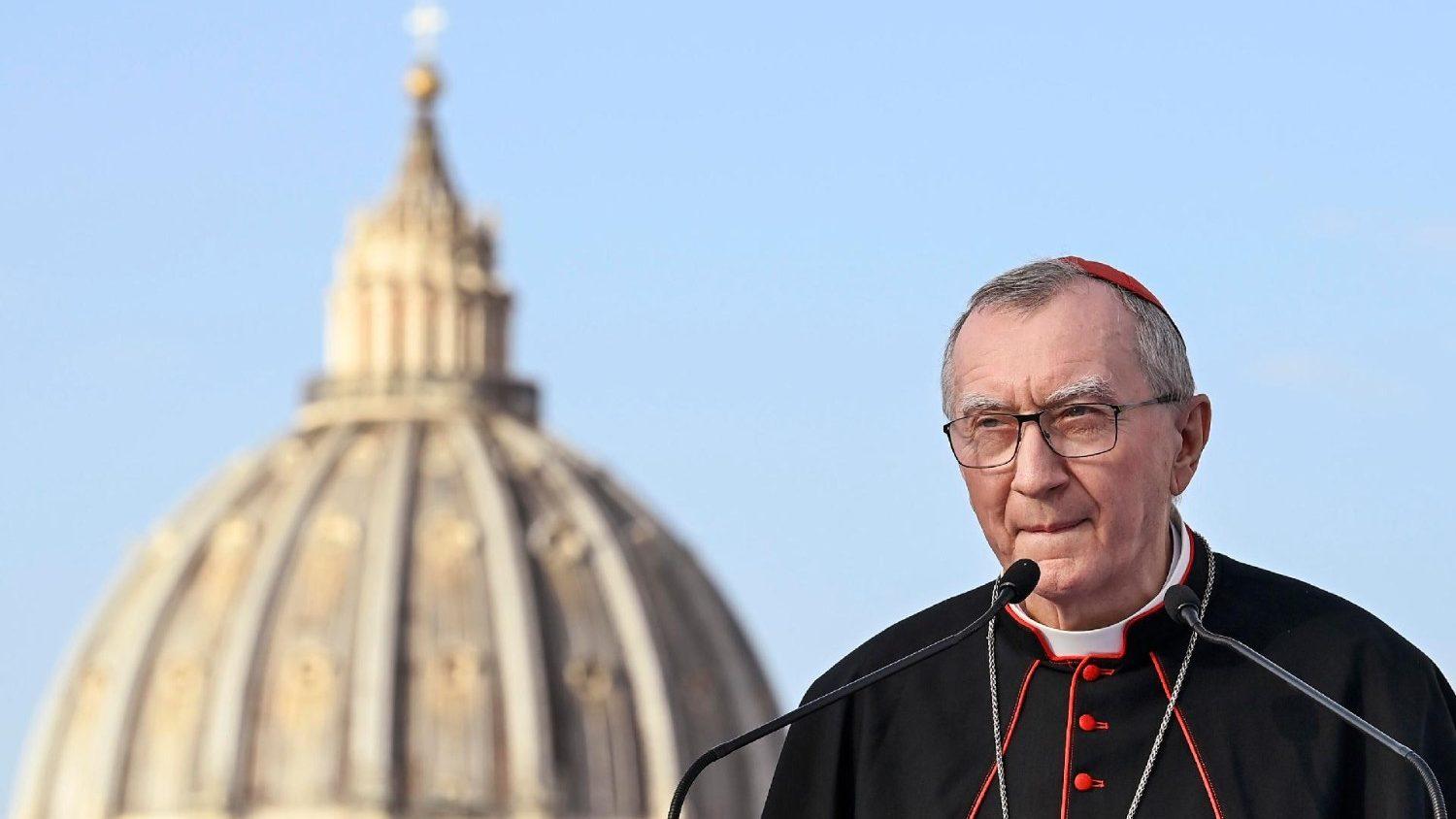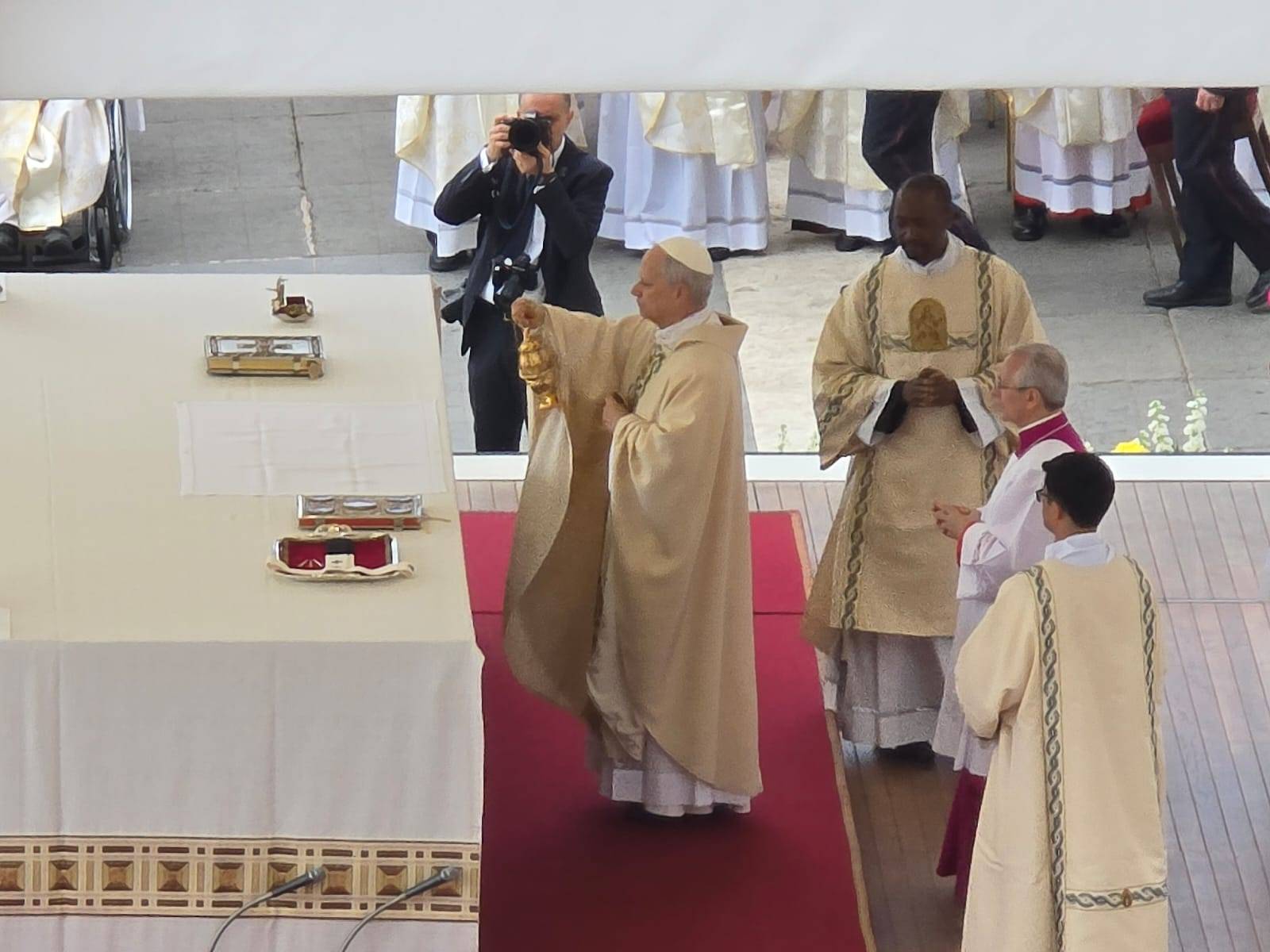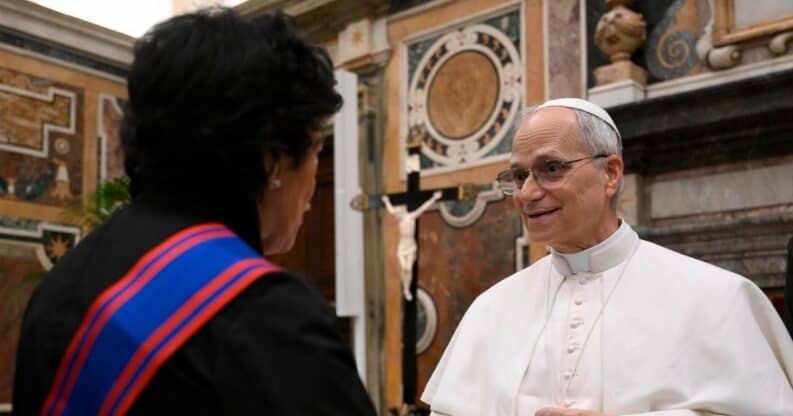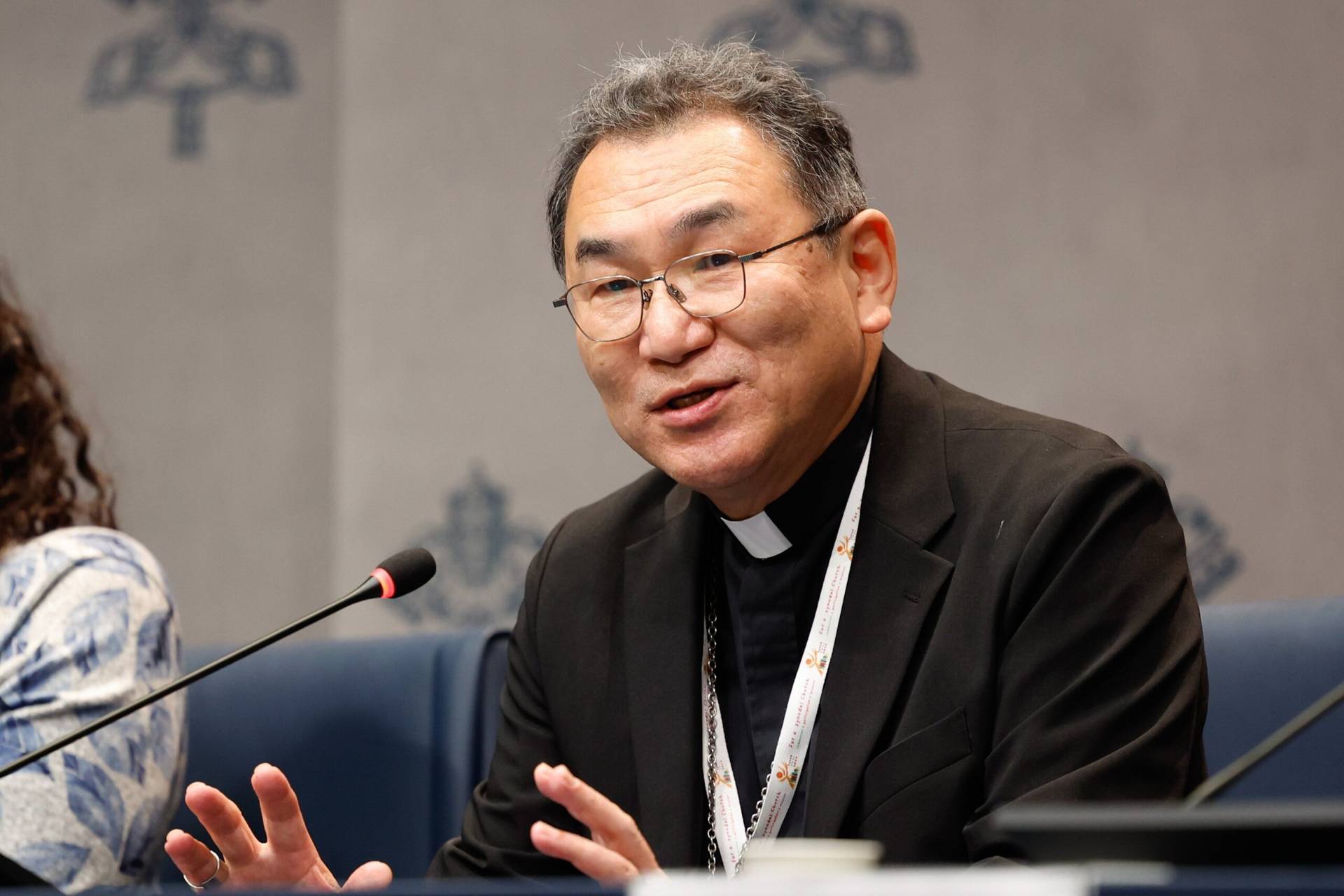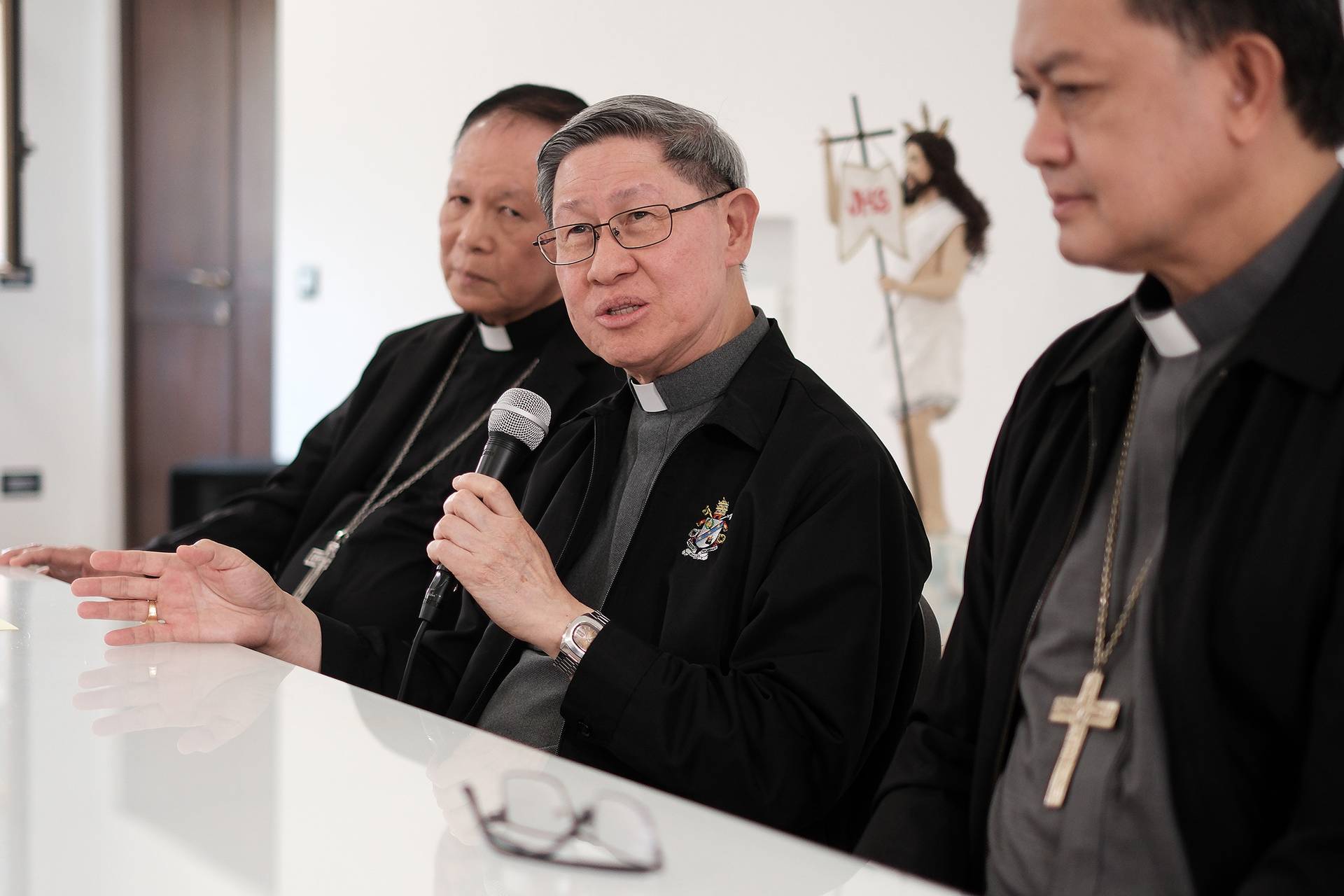Each day between now and the conclave to elect a successor to Pope Francis, on a date yet to be set, John Allen is offering a profile of a different papabile, the Italian term for a man who could be pope. There’s no scientific way to identity these contenders; it’s mostly a matter of weighing reputations, positions held and influence wielded over the years. There’s also certainly no guarantee one of these candidates will emerge wearing white; as an old bit of Roman wisdom has it, “He who enters a conclave as a pope exits as a cardinal.” These are, however, the leading names drawing buzz in Rome right now, at least ensuring they will get a look. Knowing who these men are also suggests issues and qualities other cardinals see as desirable heading into the election.
ROME – As the world is gripped by anxiety and uncertainty, driven by the rise of authoritarian governments, a conflict in Europe that seems poised to spin out of control, and deep economic volatility, the cardinals in Rome gather to elect a new pope. They decide to entrust the Barque of Peter to a veteran diplomat, a man they believe is equipped to steer her safely through the storms that seem destined to come.
In fact, that’s a description of the conclave of March 1939 which elected Cardinal Eugenio Pacelli, Secretary of State under the recently deceased Pius XI and the Vatican diplomat who had served as papal ambassador to Germany in the 1920s where he witnessed the rise of National Socialism. He took the name Pope Pius XII and would go on to lead the Church through the carnage and tumult of the war years.
Many observers believe, however, that past could be prologue in this conclave, as the world once again appears to passing through an epoch-defining series of transitions, and the man cardinals might see as best positioned to meet the moment might be another diplomat of deep experience and culture: 70-year-old Italian Cardinal Pietro Parolin, who, like Pacelli in his time, is currently the Vatican’s Secretary of State.
Born in 1955 in Schiavon, a small town of 2,500 souls in northern Italy near the borders with Austria and Switzerland, Parolin is the son of a hardware store owner father and an elementary school teacher mother. His father died in an auto accident when the young Parolin was just 10, leaving him and his brother, today a magistrate, and his sister, now a teacher herself, to be raised by their mother Ada.
Parolin was always destined to be a priest, entering the minor seminary at the age of 14 and being ordained in 1980 when he was 25. Three years later, his life took its decisive turn when he entered the prestigious Pontifical Ecclesiastical Academy in Rome, the training ground for future Vatican diplomats.
Throughout the 1980s and early 1990s, Parolin served in Vatican embassies in Nigeria, where he watched attempts to build a democracy after the Biafra civil war and a series of military coups, and then Mexico, where be played a role in restoring formal diplomatic relations after 130 years of officially anti-clerical and rigidly secularist policy from the Mexican government.
In 1992, Parolin returned to Rome and began a long run inside the Secretariat of State, serving as an aide to the second section that deals with relations with foreign governments and, later, as a top official on the Italian desk. During this period, he also became the director of Villa Nazareth, an institution founded in the rubble of World War II by the legendary Italian Cardinal Domenico Tardini to provide a first-class education to promising young students lacking the means.
In 2002, Parolin was named Undersecretary for Relations with States, making him the Vatican’s second most important diplomat, with special responsibility for relations with Vietnam and China. He’s credited with helping to normalize relations with the officially Communist government of Vietnam, which has led, among other things, to a deal over the appointment of bishops and the appointment of a standing papal representative in Hanoi.
From 2009 and 2013, Parolin served as Pope Benedict XVI’s envoy in Venezuela, where he had to navigate the stormy waters of Hugo Chávez’s “Bolivarian Revolution.” He adopted an approach he would later come to call “positive neutrality,” meaning aligning openly neither with Chávez nor his opposition, while remaining positively engaged on behalf of democracy, human rights, and basic humanitarian needs.
Not for the last time, Parolin’s line drew criticism, including from some Catholics inside Venezuela and the growing anti- Chávez diaspora, who felt the Vatican should be more forthright in challenging its socialist agenda and frequent attacks on the Church.
In August 2013, Pope Francis named Parolin his Secretary of State, a post he’s held for the last twelve years, making him the principal mainstay of the Francis administration. While the relationship between the two men has had its ups and downs – some perceived chills when Francis took away the power of the purse from the Secretariat of State, for example, or when he named his own personal trouble shooter for the conflict in Ukraine, effectively sidelining the official diplomatic team – few figures have served Francis longer or more faithfully than Parolin.
His centerpiece diplomatic achievement over these 12 years is the “Provisional Agreement” with the People’s Republic of China signed in September 2018, which has been renewed twice. Though the full terms of the deal remain secret, essentially it makes the Chinese Communist Party and the Vatican partners in naming new bishops in country.
Supporters say the China deal is essential to healing a de facto schism between an above-ground Church and an underground flock; critics say it gives the Communist Party far too much sway and is an insult to generations of Chinese Catholics who suffered and died for their loyalty to Rome.
What’s the case for Parolin as pope?
Obviously, it centers on his deep diplomatic formation and experience. There’s a short list of cardinals one can seriously imagine sitting across a table from Donald Trump, Xi Jinping or Vladimir Putin and holding his own, but Parolin’s clearly on it.
Moreover, Parolin’s also known personally for keeping an even keel and exercising great self-control. If you’re on the market for someone who can deliver much of the substance of the Francis papacy but perhaps fewer of its thrills, chills and spills, fewer of its bombshells and shocks to the system, he might seem a good buy.
The case against?
If you think the next pope needs to be more of a battler, someone who will speak loudly and clearly against religious persecution, for instance, and take the fight aggressively to perceived enemies of the Church, then Parolin’s probably not your guy – which is another way of saying you probably want a crusader rather than a diplomat.
On a more prosaic level, it’s worth recalling that prior to Pacelli in 1939, the last Secretary of State to be elected pope himself was Cardinal Giulio Rospigliosi, who became Clement IX all the way back in 1667, a span of 272 years.
The reason is fairly simple: Secretaries of State generally are too identified with the pope they served, and further, they’ve been in power way too long and simply made too many enemies to draw two-thirds of the vote in a conclave in which fellow cardinals with long memories are still nursing grudges over perceived slights or frustrations.
In addition, there are also serious questions about Parolin’s role in a spectacularly failed $400 million real estate transaction in London that led to the Vatican’s “Trial of the Century.” Though it’s a complicated story, insiders may wonder if the fact that Parolin actually approved all the disputed transactions in that fiasco is really the profile of a pope who can address the Vatican’s mounting financial crisis.
Bottom line on Parolin? Definitely an A-list candidate, but there’s also a powerful cocktail of reasons to be skeptical.
For whatever it’s worth, the famous (and famously debunked) Prophecies of St. Malachy augured that the very last pope would be named “Peter the Roman,” so Pietro Parolin, who first name means “Peter” in Italian and who’s lived in Rome for most of his adult life, might just fit the poetic bill.
